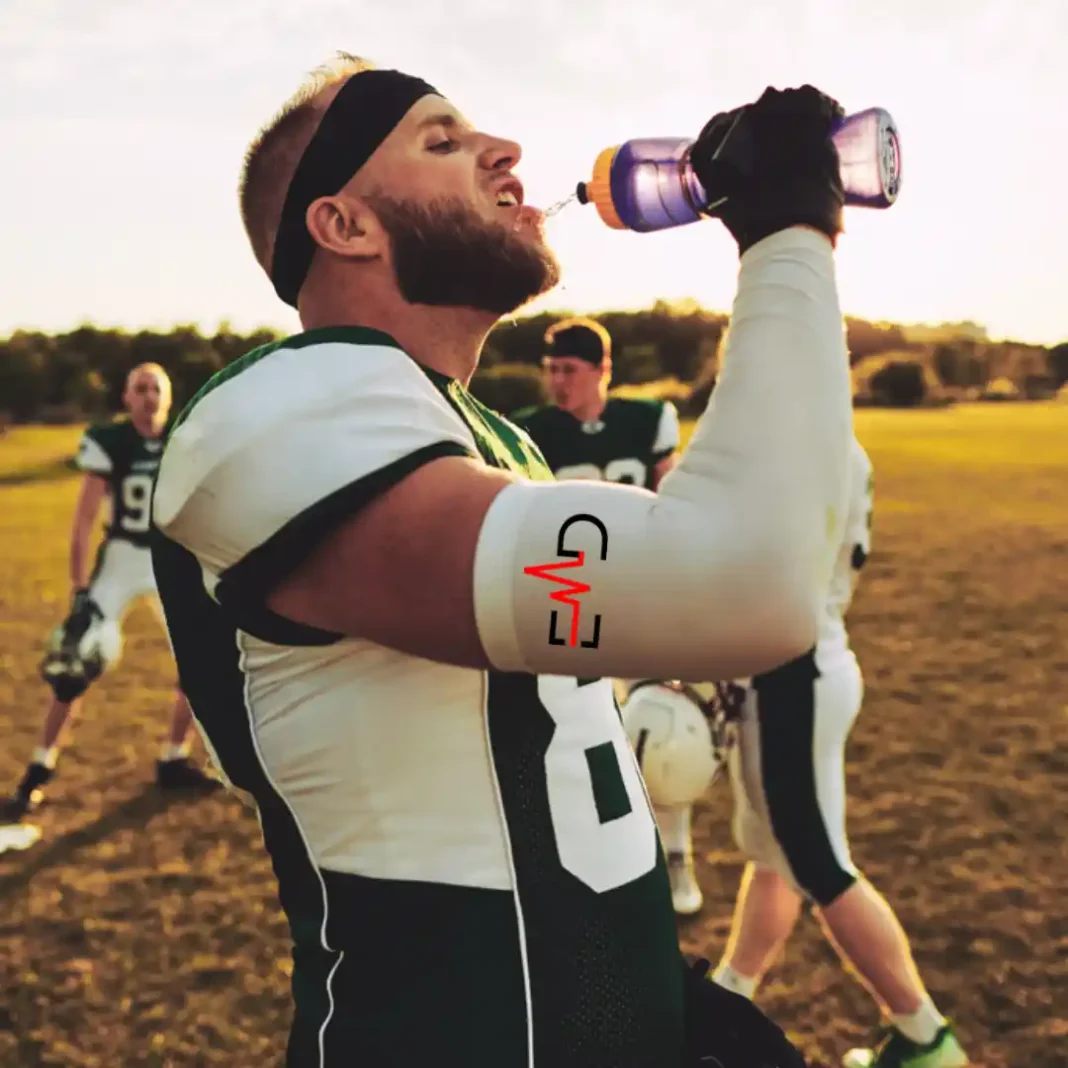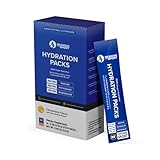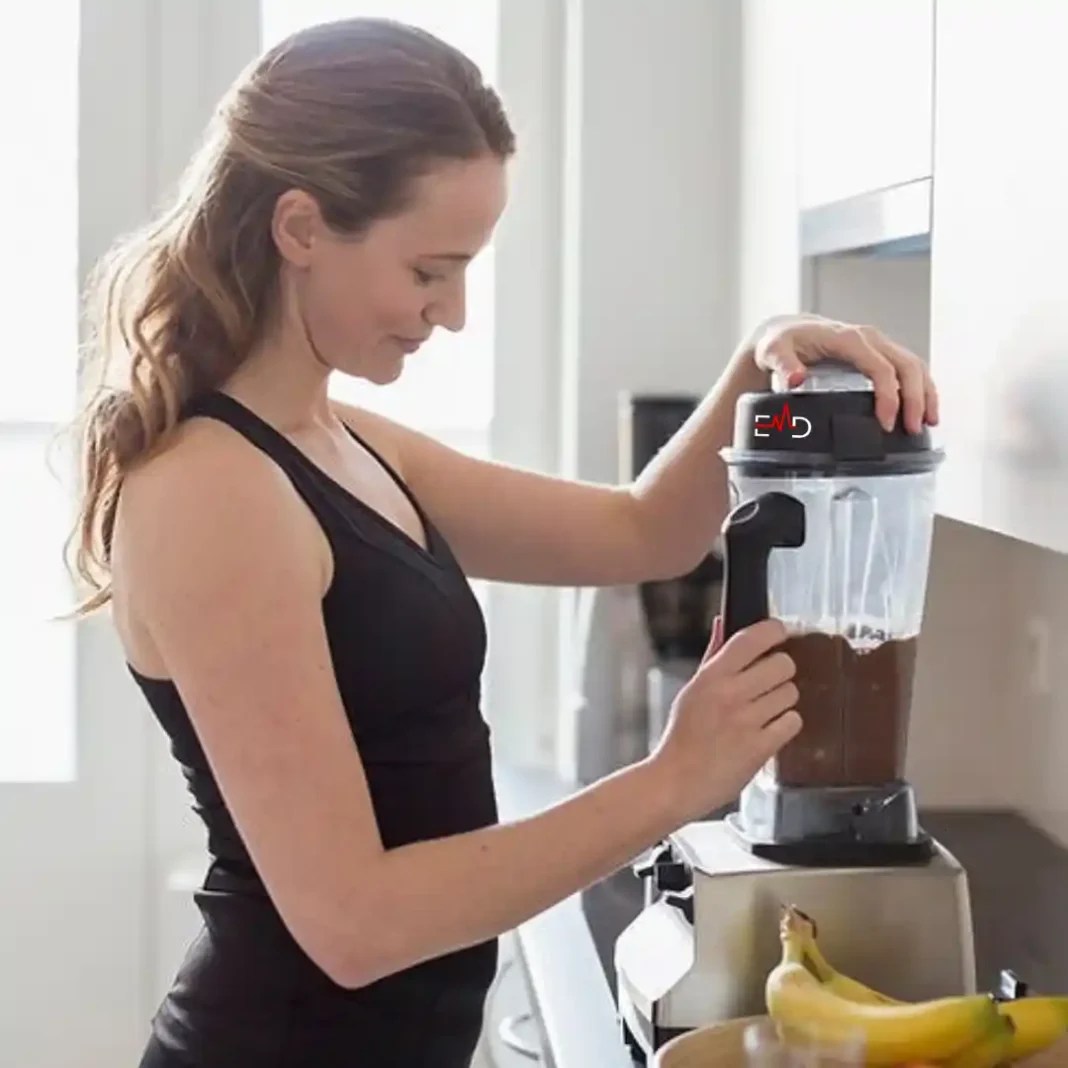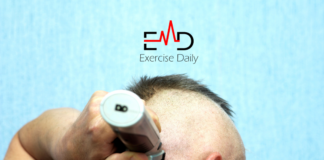Exercise Daily – Hydration is crucial in optimizing exercise performance, particularly in maintaining both physical and mental endurance during training and competition. Adequate hydration is essential to ensure the body functions efficiently, helping athletes avoid decreased performance and impaired endurance. Among athletes, monitoring hydration status is key, as even mild dehydration can lead to a drop in performance. The American College of Sports Medicine and the National Athletic Trainers‘ Association emphasize that athletes should drink water throughout the day, especially during prolonged periods of exercise, to prevent dehydration. For those exercising in the heat, staying properly hydrated becomes even more critical as the body’s core temperature rises, further increasing the risk of dehydration.
Athletes should be aware of their individual hydration needs, with some sports drinks offering electrolytes that may assist in maintaining optimal hydration levels, especially during endurance exercise. The impact of hydration on sports performance cannot be overstated, as water is essential for maintaining glycogen levels and core body temperature, both of which are critical for optimal performance.
Why Hydration Matters for Athletes
Hydration isn’t just about drinking water; it’s about maintaining the right balance of fluids in the body to support all physical activities. For athletes, this balance is even more crucial. Dehydration can lead to fatigue, muscle cramps, dizziness, and impaired concentration, which are not beneficial when aiming for top performance.
Endurance athletes, in particular, need to monitor their hydration practices closely, ensuring they consume enough fluids to meet the body’s demands. Encouraging athletes to stay hydrated can significantly improve their performance, as maintaining proper water levels in the body is key to avoiding the negative effects of dehydration.
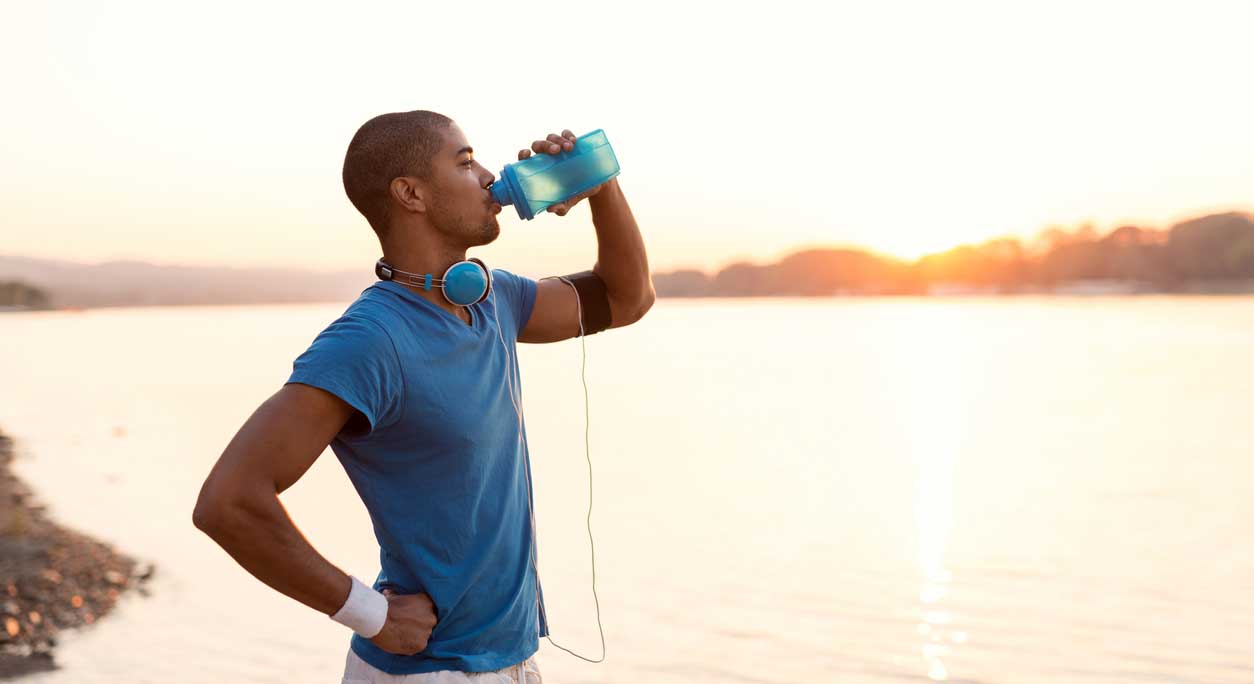
The Link Between Hydration and Physical Performance
Hydration directly impacts the way your body handles strenuous activities. A well-hydrated athlete is better equipped to maintain endurance, strength, and overall performance, while dehydration can cause quick exhaustion. This is because water facilitates the transport of essential nutrients and oxygen to muscles and organs, enabling them to perform efficiently.
Mental Edge: How Hydration Affects Focus
Beyond the physical aspects, hydration also affects mental clarity. In high-intensity sports or prolonged workouts, maintaining sharp focus is vital. When dehydration kicks in, concentration and decision-making abilities suffer, making it harder to respond quickly to changing situations.
The Physiology Behind Hydration
Let’s break it down. Your body is made up of around 60% water, and this water plays a critical role in regulating body temperature, cushioning joints, and aiding in digestion. During exercise, especially in hot environments, you lose water primarily through sweat. As the intensity of your workout increases, so does the rate at which you lose fluid.
Water’s Role in Body Functions
Water is essential for several key functions in the body. It regulates body temperature through sweating, lubricates joints to minimize the risk of injury, and helps digest food. Proper hydration ensures that all these processes function optimally, which becomes even more important during physical exertion.
Electrolytes and Their Importance
When athletes sweat, they don’t just lose water; they lose electrolytes like sodium, potassium, and chloride. These electrolytes help with nerve signaling, muscle contraction, and maintaining fluid balance. An athlete’s muscles may cramp without replenishing them, and their endurance can plummet.
Fluid Balance in the Human Body
Fluid balance is the key to staying hydrated. When you sweat, you lose water and electrolytes—sodium, potassium, and chloride; essential for muscle function and nerve transmission. The goal is to replace what you lose to maintain this balance and keep your body working efficiently.
How the Body Maintains Fluid Balance
Your kidneys regulate fluid levels by controlling how much water is excreted in urine. Hormones like vasopressin signal your body when it needs to conserve water, but this balance can easily be thrown off by intense exercise, hot conditions, or poor hydration habits.
Impact of Imbalanced Fluid Levels on Athletic Performance
When fluid levels are out of balance, performance suffers. Dehydration, even mild, can reduce endurance, raise heart rate, and impair your ability to focus. Severe dehydration can lead to dangerous heat illnesses, which can be life-threatening if not addressed promptly.
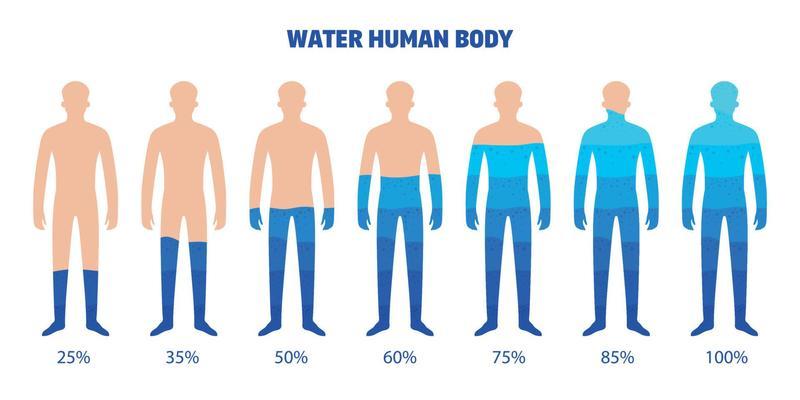
As an Amazon Associate, Exercise Daily earns from qualifying purchases. This post may contain affiliate links. Last updated: February 20, 2026
As an Amazon Associate, Exercise Daily earns from qualifying purchases. This post may contain affiliate links. Last updated: February 20, 2026
How Dehydration Impacts Performance
Even mild dehydration can significantly impact athletic performance. It can increase your heart rate, reduce your endurance, and make it harder for your body to regulate temperature. If dehydration becomes severe, it can lead to heat exhaustion or heatstroke, both of which are dangerous and require immediate medical attention.
Key Signs of Dehydration in Athletes
Recognizing when you’re dehydrated is vital for athletes. The early signs may not always be obvious, but they can quickly escalate if not addressed.
Recognizing Early Dehydration Symptoms
Some common early signs include dry mouth, thirst, headaches, and fatigue. Your performance may start to lag, and you might find it difficult to focus. Early intervention is key, and you can avoid more serious symptoms by drinking water as soon as you notice these signs.
Severe Dehydration and Its Effects
Severe dehydration can cause dizziness, rapid heartbeat, confusion, and a drastic drop in performance. In extreme cases, it can lead to heat-related illnesses, such as heatstroke, which can be life-threatening. Understanding how to manage hydration before it reaches this stage is crucial for any athlete.
The Importance of Hydration for Endurance Athletes
Endurance athletes, such as marathon runners or triathletes, are at a higher risk of dehydration due to prolonged periods of intense physical activity.
Maintaining Performance in Long-Distance Events
In long-distance events, your body continually loses water and electrolytes through sweat. If these aren’t replenished, your muscles fatigue faster, and your energy levels drop. Hydration becomes crucial to maintain performance over extended periods.
Hydration Strategies for Marathon Runners
For marathon runners, staying ahead of hydration needs means drinking regularly, even before you feel thirsty. It’s about planning your fluid intake before, during, and after your race. Sports drinks containing electrolytes and carbohydrates can support longer endurance events.
Sports Drinks vs. Water: What’s Best?
Regarding rehydration, sports drinks can be beneficial for athletes who are sweating heavily for prolonged periods. These drinks not only replace lost fluids but also provide electrolytes and carbohydrates that help fuel your body during extended activity.
Benefits of Water for Shorter Workouts
For most shorter workouts, water is usually enough to meet hydration needs. Drinking water before and after these sessions can support recovery and performance without the need for added sugars or electrolytes from sports drinks.
When to Use Sports Drinks
Sports drinks are particularly useful during long endurance events, where electrolyte loss is high. They offer a quick energy source and help replenish sodium and potassium lost through sweat. This can aid in preventing muscle cramps and dehydration-related fatigue.
Effects of Hydration on Athletic Performance
The effects of hydration are wide-ranging, impacting both physical and mental aspects of performance.
Physical Performance
Proper hydration ensures that your muscles are supplied with enough oxygen and nutrients, enhancing endurance, strength, and recovery time. Without enough water, your body can’t perform basic functions as effectively, and your energy levels will drop.
Mental Performance
It’s not just your body that suffers; your brain does too. Dehydration can decrease concentration, decision-making, and reaction time, all of which are crucial for athletic performance, especially in fast-paced sports.
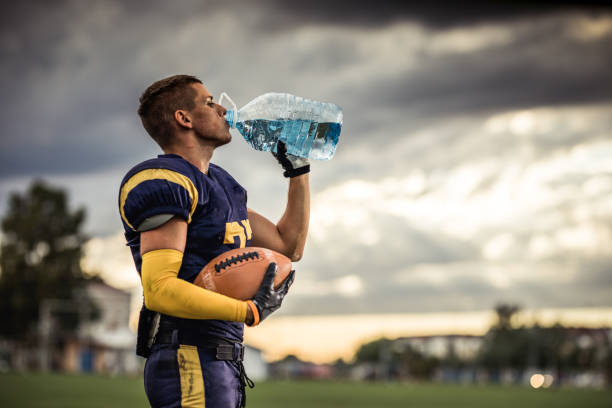
Hydration Strategies to Maximize Performance
If you want to maximize your athletic performance, it’s not just about drinking water during your workout—it’s about developing a comprehensive hydration strategy.
Pre-Exercise Hydration
Start hydrating well before your exercise session begins. Aim to drink 16-20 ounces of water about two hours before you begin, allowing your body time to absorb the fluid and prepare for physical activity.
During Exercise Hydration
Is It Bad to Drink Water While Standing? Aim to consume 7-10 ounces of fluid during exercise every 10-20 minutes. This will help you stay hydrated without overloading your stomach, allowing your body to perform at a high level.
Post-Exercise Hydration
After your workout, it’s time to replenish the fluids and electrolytes lost during exercise. This is especially important for recovery. Drink 16-24 ounces of fluid for every pound of body weight lost during exercise.
Replenishing Lost Electrolytes
Electrolytes are crucial for muscle function and hydration. Sports drinks, coconut water, and electrolyte supplements are great ways to restore electrolyte levels and ensure your muscles recover properly.
How Much Water Should an Athlete Drink?
Hydration needs vary from athlete to athlete, but a good rule of thumb is to drink when you’re thirsty and monitor your urine color—it should be pale yellow. Still, calculating sweat rate is the most precise way to determine your fluid needs.
Calculating Sweat Rate
To calculate your sweat rate, weigh yourself before and after a workout. For every pound lost, drink 16-24 ounces of fluid. This will help you understand how much water you need to stay hydrated during future workouts.
Personalized Hydration Plans
Based on sweat rate and exercise intensity, athletes can create personalized hydration plans to ensure they drink enough water to maintain performance and avoid dehydration.
Common Hydration Mistakes and How to Avoid Them
While hydration seems straightforward, athletes often make mistakes that can negatively impact their performance.
Drinking Too Much Water
Yes, it’s possible to overhydrate. Drinking too much water can dilute sodium levels in the body, leading to a condition known as hyponatremia, which can be just as dangerous as dehydration.
Ignoring Electrolytes
Athletes often focus solely on water intake and ignore the importance of electrolytes. Remember, it’s not just about fluid replacement but also restoring essential minerals lost through sweat.
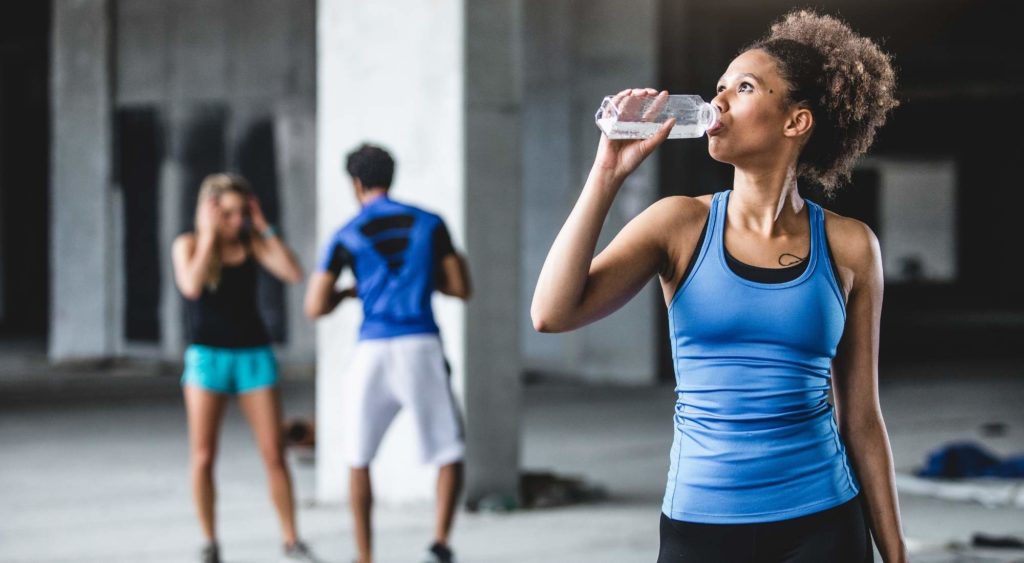
Conclusion
Hydration plays a critical role in both athletic performance and recovery. From casual workouts to elite competitions, staying hydrated can enhance your performance, reduce the risk of injury, and keep your body functioning optimally. Understanding your hydration needs, recognizing signs of dehydration, and implementing a solid hydration strategy can help you achieve peak performance.
FAQs – The Role of Hydration in Athletic Performance
Q: How much water should I drink before exercise?
A: To ensure proper hydration before exercise, aim to drink about 16-20 ounces of water two hours before you begin. This allows your body enough time to absorb the fluids and hydrate your tissues, ensuring you’re ready for physical activity.
Q: Can drinking too much water be harmful?
A: Yes, drinking excessive amounts of water can lead to a condition called hyponatremia, where sodium levels in the body become dangerously low. This imbalance can cause nausea, confusion, seizures, and, in extreme cases, can be life-threatening. To avoid overhydration, focus on balancing water intake with electrolytes, especially during long or intense exercise sessions.
Q: What are the best hydration options for athletes?
A: Both water and sports drinks are effective for hydration. Water is typically sufficient for shorter, moderate-intensity workouts. For prolonged or high-intensity exercises with significant fluid and electrolyte loss, sports drinks containing electrolytes and carbohydrates can be more beneficial for maintaining hydration and energy levels.
Q: How can I tell if I’m dehydrated?
A: Common signs of dehydration include dark urine, dry mouth, headaches, fatigue, and dizziness. Other physical symptoms might include muscle cramps, dry skin, and an elevated heart rate. Monitoring urine color is a simple and effective way to check hydration levels; ideally, it should be a pale yellow color.
Q: Are sports drinks necessary for short workouts?
A: Water is typically sufficient for hydration for short workouts (under an hour). Sports drinks become more necessary during longer, high-intensity workouts (lasting more than 60-90 minutes), where electrolyte depletion from sweating is more significant.

